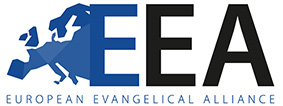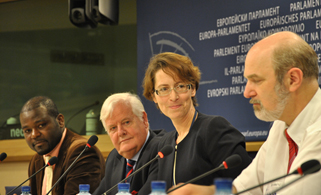That’s not a question only Britons have asked themselves. What is left of the original dream of the EU’s founding fathers? And where is the EU going? Is the European Union still a Christian project and should it be?
The European Union is a voluntary cooperation of 27 member states on the European continent. No country was forced to join and as Brexit has shown, if you want to leave, you can. Both joining and leaving can be a long, complex, and painful procedure but it is possible.
For many Europeans, the European Commission and the European Parliament are distant entities. How many EU Commissioners or Members of the European Parliament do you know? At the same time, the influence of the European Union on our countries and our lives is considerable. However, we only seem to notice this when we perceive the influence as negative. That is further strengthened by national governments and politicians who have a tendency to take credit for the good and blame Brussels for the harder sells.
Economic cooperation has always been a central element of the Union but for the founding fathers that was a means to an end: ‘a community of peoples in freedom, equality, solidarity and peace, and deeply rooted in Christian basic values.’[1] The European Union, therefore, is more than just the single market and its success goes beyond financial figures and peace. The European Union is a communion of values as well. That resembles the call of Robert Schuman and others, but there is no clear reference any longer to ‘basic Christian values.’ They are now replaced by a reference to European values. And, although nowadays, Europe is built on the shoulders of generations of Christians, and there are definitely still traces of that in our societies, European values and Christian basic values are not the same. That becomes painfully clear in discussions about the beginning and end of life, sexual and reproductive health and rights, and the definition of marriage and family. Even though these topics are first and foremost a responsibility of the member states, the pressure is there. Some quotes from these discussions can be really shocking and in stark contrast to what we would call Christian values. That can easily alienate Christians from the European project. Some wonder where this seemingly godless Union is heading and do we as Christians still want to be part of that? These are valid questions and it is good to wrestle with them. At the same time, it is good to realise that these questions are not limited to the European Union. They affect our own countries as well.
In light of the discussion of the topics mentioned above, as EEA we are concerned about recent initiatives to elevate hate speech to the list of EU crimes which would allow the European Commission to set common standards and penalties for hate speech. Of course, as EEA we do not support hate speech. But, so far, a clear definition of hate speech is missing. We are concerned, therefore, that EU wide hate speech law could limit our legal right to Freedom of Expression. We already submitted our concerns to the European Commission and will continue to follow the debate closely.
On other topics, cooperation between the 27 EU member states can be a force for good. As EEA, we’ve contributed to the debate about Artificial Intelligence and the draft EU law on the matter. Only together, EU member states can set guidelines for and boundaries to the development and deployment of AI. As EEA, together with Christian experts on the topic, we advocate for the implementation of AI that does justice to the Biblical understanding of humankind, created in the image of God and in relation to one another.
It can be easy to criticise a distant body as the European Union, but we should not forget that the European Union is the combined result of 27 member states and that the policies made at European level all require the involvement of our own governments and our ‘own’ members of the European Parliament. This is not to say that the European Union is a perfect democracy. There is definitely room for improvement. But we are not passive standers by either. We are called to vote for the European Parliament and for our own Parliaments. Who do we send there? And do we continue to try to follow what our representatives do on our behalf?
Both the European Parliament and our own national parliaments are a reflection of our own societies. These societies are increasingly diverse and that’s not just because of foreign influences. What has been our role as Christians and churches in this transformation of our societies? Have we been Good News People and exemplified basic Christian principles? Have we been the salt we are called to be?
There is a lot of justified criticism of the European Union and there is, no doubt, a lot of justified criticism of our own governments and our own societies as well. But if we want to change that, it starts with ourselves. Changing the European Union starts in our own neighbourhood. Changing the European Union starts with mission, it starts with us.
[1] As quoted in Deeply Rooted, the forgotten vision of Robert Schuman, Jeff Fountain, SeismosPress.com, 2013 (page 5)












